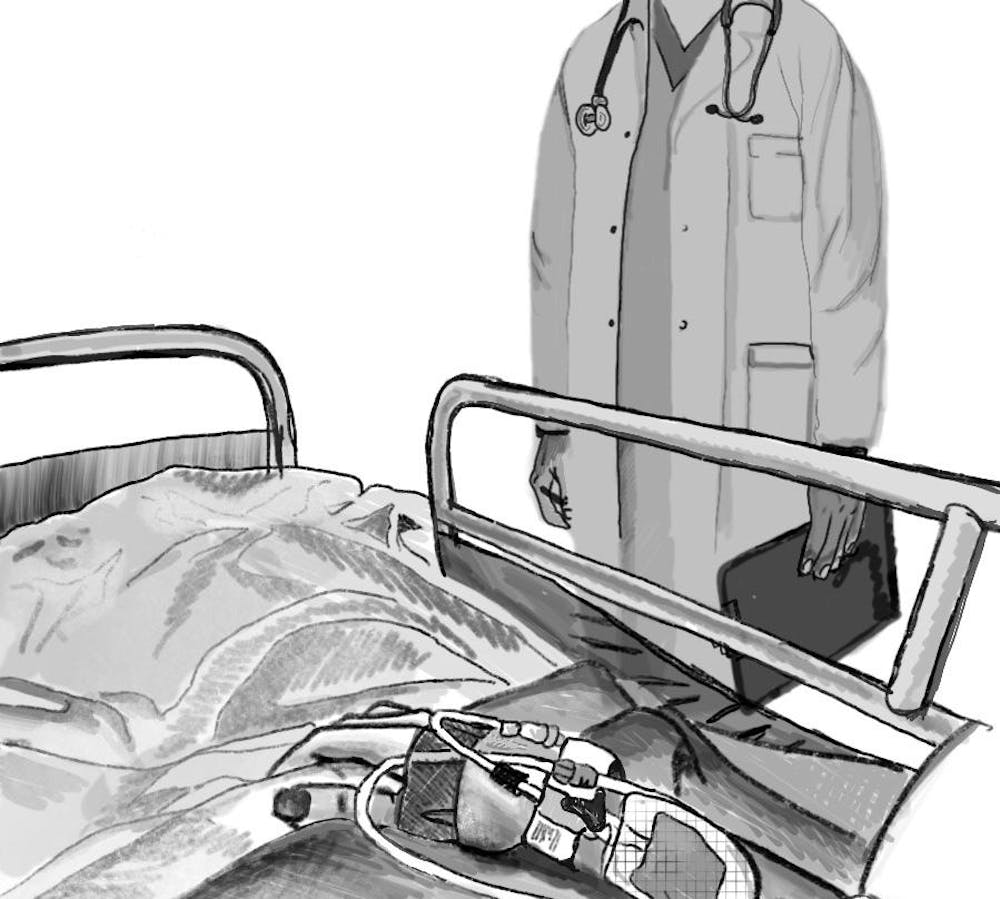Last month, State Representative Edith Ajello (D-Providence) introduced a bill that would allow terminally ill R.I. residents to request physician-assisted suicide via a prescription for lethal medication to the Rhode Island House of Representatives’ Committee on the Judiciary.
Ajello first introduced House Bill 7100, also known as the Lila Manfield Sapinsley Compassionate Care Act, to the state legislature in 2015. Since then, Ajello has reintroduced the bill in nine legislative sessions. It has never advanced past a stage of “further study,” which is where the bill currently stands, largely due to strong opposition from the Catholic community.
Ajello introduced the bill on behalf of former state Senator Lila Manfield Sapinsley, who worked on the bill up until her passing in 2015. The legislation is dedicated “in memory of her husband and (the) too many friends she watched die hard deaths,” Ajello said.
The bill would allow terminally ill patients — those determined by a physician to have fewer than six months of life left — to obtain a lethal prescription, typically in the form of a sleeping pill. Patients would only receive these prescriptions if they meet “very rigid parameters,” said Reverend Donnie Anderson, a pastor at Pilgrim United Church of Christ in New Bedford, Massachusetts, who testified at the Feb. 15 committee hearing.
The bill would require patients to submit two verbal requests for a lethal prescription, at least 15 days apart. They would also be required to make an additional written request to their physician. Following the verbal and written requests, two doctors must deem the patient capable of making an informed decision and physically able to self-administer the medication.
Joan Teno, an adjunct professor of health services, policy and practice, noted that medical professionals are “strictly protected” by the bill: if a healthcare provider does not wish to prescribe a lethal medication, they are under no obligation to do so. Physicians are also immune from accusations of unprofessional conduct as long as the patient meets all requirements.
In 1997, Oregon became the first state to legalize physician-assisted suicide. Nine states and Washington, D.C. have passed legislation or rulings legalizing lethal prescriptions since then.
But to some, legislation legalizing physician-assisted suicide overlooks the need to strengthen other palliative care, said Timothy Flanigan, a professor of medicine and member of the Division of Infectious Diseases at the Miriam and Rhode Island Hospitals and Warren Alpert Medical School.
“Our role as physicians is to relieve pain and suffering and to care for individuals,” he said. “To encourage suicide, to promote it or to couch it as good medical care is the wrong approach.”
Teno expressed similar sentiments. There are “important unmet needs and concerns with the quality of end-of-life care,” she said, adding that her biggest concern with the legalization of assisted suicide is “making sure people are not choosing this route because of inadequate palliation.”
But as a pastor, Anderson believes her responsibility is to “provide spiritual support and caring when she sees someone suffering,” she said. Anderson shared her experience supporting friends suffering from amyotrophic lateral sclerosis.
“I really can't believe that any caring human being would ever say that you have to go through that,” she said. “There's no way in the world that I believe that God would say you have to go through that.”
Much of the opposition to the bill has come from the state’s Catholic community, which represents the highest share of the population of any state nationwide. Reverend Bernard Healey, the chief lobbyist for the Roman Catholic Diocese of Providence, has lobbied against the bill since its introduction, submitting written testimony each time the bill is reintroduced.
In his Feb. 15 testimony, Healey argued that physician-assisted suicide “violates the most basic tenet of (The Church’s) belief in the dignity and sacredness of life,” he wrote.
For Healey, elderly and sick populations would be “tempted to see their lives as less valuable” if the bill were passed. The testimony ended with a petition to reject the “attempt to legalize assisted suicide for the most vulnerable” R.I. residents.
“If it wasn't for the highly organized resistance of the Diocese, this bill would have passed several years ago,” Anderson said.
Ajello believes that the bill would pass in the Committee on the Judiciary if a motion to vote on the bill was made. She said that the bill would likely pass in the House as well, though getting a vote in the state Senate would be “a little more difficult,” since “the Senate president is more Catholic.”
Though nearly ten years have passed since she first introduced the bill, Ajello remains steadfast in her commitment to its passage. “Each step is another step,” she said.

Maya Kelly is a metro editor from Providence who covers community, crime and activism as well as business and development. A concentrator in urban studies and data fluency, she is passionate about intersecting storytelling with data analysis. When Maya's not at The Herald, you can find her hanging from an aerial silk, bullet journaling or in the middle of a forest.





